Cocoa, the key ingredient in chocolate, has been the subject of much research regarding its potential effects on fertility. This article will explore the scientific evidence on how cocoa consumption can impact both male and female fertility. We will delve into the nutritional profile of cocoa, its antioxidant properties, and the specific mechanisms by which it may influence reproductive health. Additionally, we will discuss the recommended levels of cocoa intake for those seeking to optimize their fertility, as well as the potential risks and side effects associated with overconsumption. By the end of this article, readers will have a comprehensive understanding of the complex relationship between cocoa and fertility.
Key Takeaways
- Cocoa is a complex food source with a wide array of essential nutrients and beneficial plant compounds.
- The potential impact of cocoa consumption on fertility is multifaceted and can be attributed to its unique nutritional profile and bioactive compounds.
- Moderate intake of cocoa may provide potential benefits for both male and female reproductive health, primarily due to its antioxidant properties, improved blood flow, and hormonal modulation.
- Overconsumption of cocoa can have negative effects on reproductive health, so moderation is key.
- Incorporating cocoa into a fertility-friendly diet requires focusing on high-quality, minimally processed cocoa products.
Introduction to Cocoa and Its Potential Effects
Cocoa is the dried and fermented seed of the cacao tree (Theobroma cacao), native to Central and South America. It has been consumed for thousands of years, with evidence of its use dating back to the ancient Mesoamerican civilizations. Historically, cocoa was revered for its medicinal properties, including its potential to enhance fertility.
What is Cocoa?
Cocoa, the key ingredient in chocolate, is a complex and versatile food source that has long been of interest to researchers and health enthusiasts alike. The cacao tree, from which cocoa is derived, is indigenous to the tropical regions of the Americas and has been a significant part of the cultural and culinary heritage of these areas for centuries.
History of Cocoa Consumption and Fertility
The use of cocoa and its potential effects on fertility can be traced back to the ancient Mesoamerican civilizations, such as the Aztecs and Mayans. These cultures revered the cacao plant, believing it to possess sacred and medicinal properties, including the ability to enhance sexual function and fertility. Over the centuries, the reputation of cocoa as a fertility-boosting food has persisted, leading to ongoing research and interest in its potential effects on reproductive health.
Nutritional Profile of Cocoa
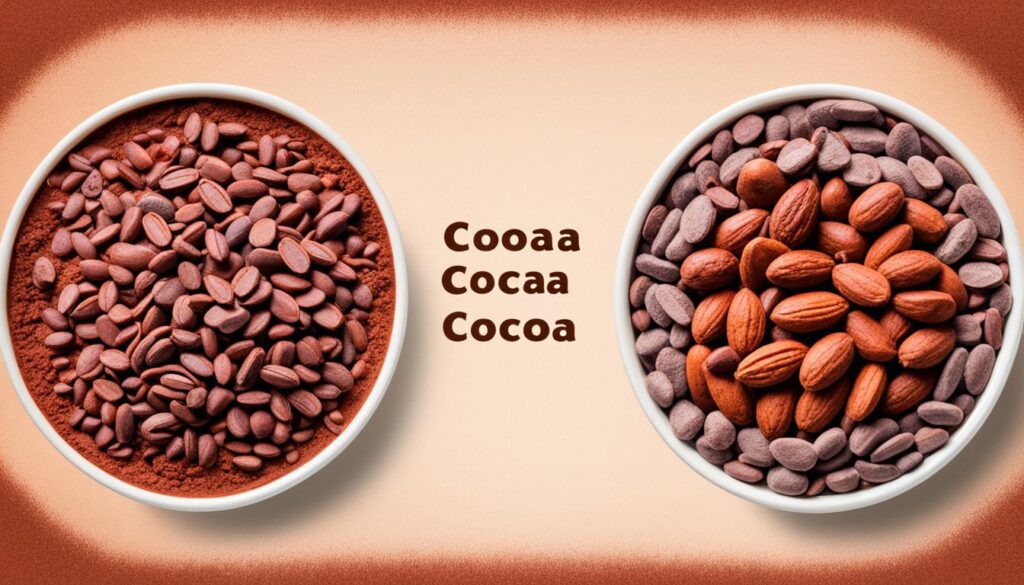
Cocoa, the key ingredient in chocolate, is a complex food source that contains a wide array of essential nutrients and beneficial plant compounds. Understanding the nutritional profile of cocoa is crucial in exploring its potential impact on fertility.
Key Nutrients in Cocoa
Cocoa is rich in essential vitamins and minerals such as magnesium, iron, copper, and zinc. These nutrients play vital roles in various physiological processes, including reproductive function. Additionally, cocoa is a good source of dietary fiber, which can contribute to overall digestive and hormonal health.
Antioxidants in Cocoa
One of the most notable features of cocoa is its high antioxidant content. Cocoa is particularly rich in flavonoids, a group of plant-based compounds with potent antioxidant properties. These antioxidants can help neutralize harmful free radicals, which have been linked to various health issues, including impaired fertility.
The high antioxidant capacity of cocoa is attributed to its content of polyphenols, such as flavanols and procyanidins. These compounds have been shown to have a positive impact on reproductive health by reducing oxidative stress and inflammation, which can contribute to improved sperm quality and ovarian function.
| Nutrient | Amount in Cocoa |
|---|---|
| Magnesium | 228 mg per 100g |
| Iron | 7.5 mg per 100g |
| Copper | 1.7 mg per 100g |
| Zinc | 3.1 mg per 100g |
| Dietary Fiber | 10.9 g per 100g |
| Flavanols | Approximately 10-50 mg per 100g |
| Procyanidins | Approximately 300-400 mg per 100g |
How Does Cocoa Consumption Impact Fertility?
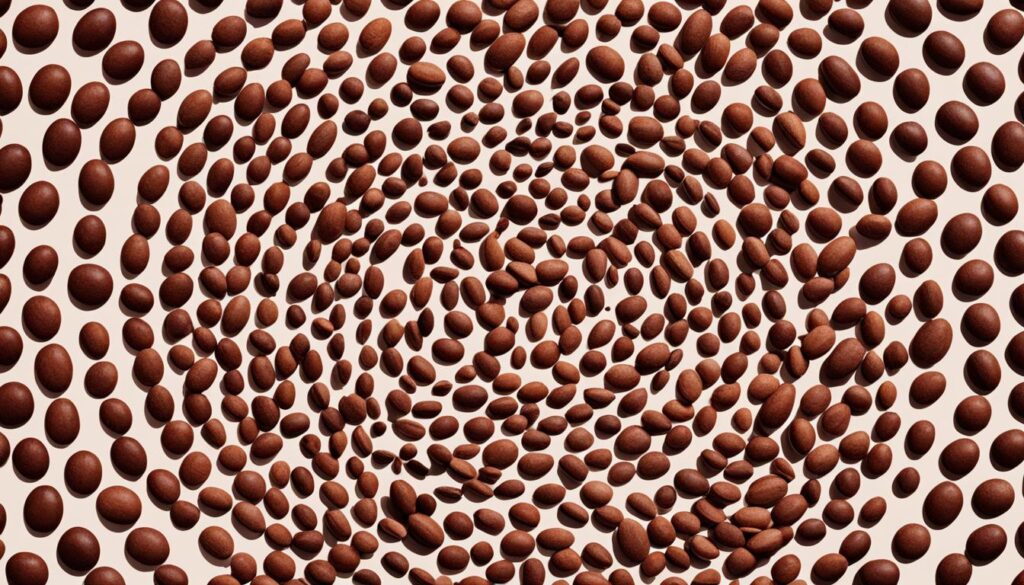
The potential impact of cocoa consumption on fertility is multifaceted and can be attributed to its unique nutritional profile and the various bioactive compounds it contains. Several mechanisms have been proposed to explain how cocoa may influence reproductive health:
Antioxidant Properties: Cocoa is rich in antioxidants, particularly flavonoids, which may help protect the body’s cells, including reproductive cells, from oxidative stress. Oxidative stress has been linked to reduced fertility in both men and women, and the antioxidant compounds in cocoa may help mitigate this effect.
Improved Blood Flow: Cocoa contains compounds that can enhance blood flow and vasodilation, which may improve the delivery of vital nutrients and oxygen to the reproductive organs. This improved circulation can support healthy sperm production, ovulation, and implantation.
Hormonal Modulation: Some studies suggest that the bioactive compounds in cocoa may have the ability to influence hormonal balance, potentially regulating the production of key reproductive hormones like testosterone and estrogen. This hormonal modulation could play a role in enhancing fertility.
Anti-inflammatory Properties: Cocoa’s anti-inflammatory properties may also contribute to its potential fertility benefits. Chronic inflammation has been associated with reduced fertility, and the anti-inflammatory compounds in cocoa may help mitigate this issue.
Overall, the multifaceted effects of cocoa consumption on fertility are an active area of research, with promising findings suggesting that moderate intake may offer potential benefits for both male and female reproductive health. However, more extensive studies are needed to fully understand the complex relationship between cocoa, its effects on fertility, and the optimal levels of consumption for those seeking to optimize their fertility.
Role of Cocoa in Male Fertility
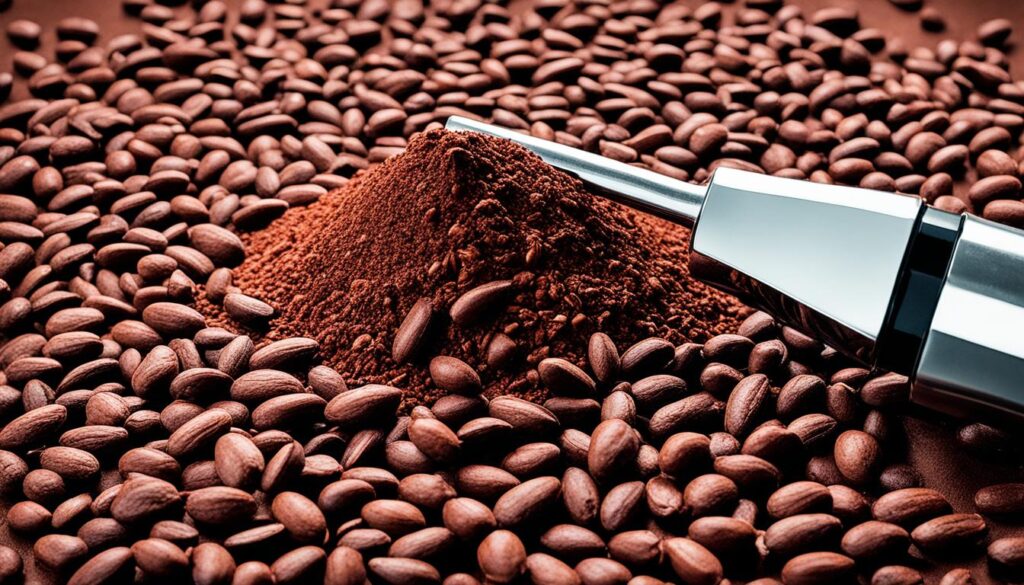
The potential impact of cocoa consumption on male fertility has been the subject of several intriguing studies. The antioxidant and nutrient-rich nature of cocoa may contribute to improved sperm quality and hormonal balance in men, potentially enhancing their overall reproductive health.
Effects on Sperm Quality
Numerous studies have explored the relationship between cocoa and sperm quality. Cocoa is rich in flavonoids, which possess potent antioxidant properties. These antioxidants may help protect sperm cells from oxidative stress, a leading contributor to male infertility. By reducing oxidative damage, cocoa consumption has been linked to improvements in sperm motility, concentration, and morphology – all crucial factors for successful fertilization.
Impact on Testosterone Levels
In addition to its effects on sperm quality, cocoa’s impact on testosterone levels has also been investigated. Testosterone is a key hormone for male reproductive function, playing a vital role in sperm production, libido, and overall sexual health. Emerging research suggests that the phytochemicals in cocoa may have a positive influence on testosterone synthesis and regulation, potentially contributing to enhanced male fertility.
Cocoa and Female Fertility
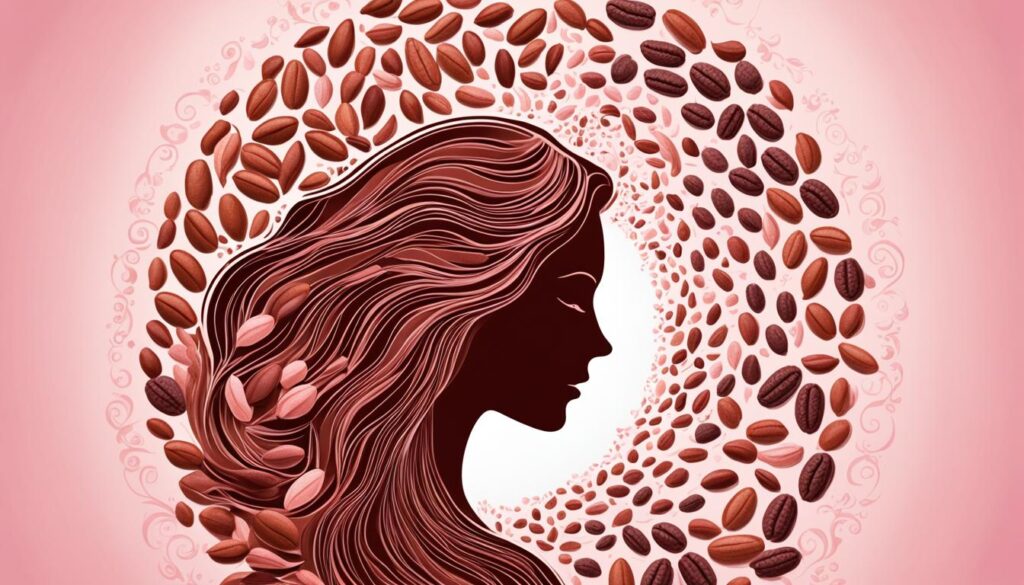
The potential impact of cocoa consumption on female fertility has also been investigated. Although the research is more limited compared to male fertility, there are some intriguing findings:
Effects on Ovulation
Studies suggest that cocoa may have a positive effect on ovulation in women. The antioxidants and bioactive compounds present in cocoa, such as flavonoids, may help regulate the menstrual cycle and improve ovarian function. Some research indicates that regular cocoa intake may lead to more regular ovulation and potentially enhance fertility in women.
Potential Impact on Implantation
While the research on the impact of cocoa on implantation is still limited, some studies have hinted at a potential role of cocoa in supporting the implantation process. The anti-inflammatory properties of cocoa may help create a more favorable uterine environment for successful implantation, which is crucial for achieving pregnancy. However, more research is needed to fully understand the mechanisms by which cocoa may influence this critical step in the fertility process.
| Cocoa’s Impact on Female Fertility | Potential Benefits | Limitations |
|---|---|---|
| Effects on Ovulation |
|
|
| Potential Impact on Implantation |
|
|
Recommended Cocoa Consumption for Fertility

When it comes to cocoa consumption and fertility, moderation is key. While some studies suggest potential benefits, overconsumption of cocoa can have negative effects on reproductive health. Understanding the recommended cocoa consumption for fertility, as well as the safe levels of cocoa intake, is crucial for those looking to optimize their chances of conception.
Safe Levels of Cocoa Intake
The research on the safe levels of cocoa intake for fertility is still emerging, but a general recommendation is to limit cocoa consumption to moderate amounts. Most experts suggest that consuming up to 30 grams of cocoa per day is considered safe and may even provide some potential fertility benefits. However, it’s important to note that the optimal dose may vary depending on individual factors, such as overall diet, lifestyle, and health status.
Moderation is Key
While moderate cocoa intake may offer some advantages for fertility, it’s essential to practice moderation of cocoa intake for fertility. Overconsumption of cocoa can lead to adverse effects, such as increased caffeine intake, potential disruptions in hormone balance, and potential interference with nutrient absorption. It’s recommended to incorporate cocoa as part of a balanced, fertility-friendly diet, rather than relying on it as a sole or primary source of nutrition.
Cocoa Fertility Myths and Facts

As the relationship between cocoa and fertility gains more attention, it’s important to address the common misconceptions and myths surrounding this topic. By separating cocoa fertility facts from the cocoa fertility myths, we can provide a clearer understanding of the true impact of cocoa on reproductive health.
Debunking Common Misconceptions
One of the most persistent cocoa fertility myths is that consuming large amounts of cocoa can significantly boost fertility. While some studies have suggested potential benefits of moderate cocoa intake, there is no conclusive evidence that high doses of cocoa can dramatically increase fertility rates. In fact, overconsumption of cocoa may actually have negative effects on reproductive function.
Another myth is that cocoa can treat infertility or replace medical treatments. While cocoa may provide some supportive benefits, it should never be considered a substitute for professional medical care and proven fertility treatments. Individuals struggling with infertility should always consult with their healthcare providers before making any significant changes to their diet or lifestyle.
Conversely, cocoa fertility facts suggest that moderate, consistent consumption of high-quality cocoa may contribute to improved reproductive health in both men and women. The antioxidant properties of cocoa, along with its potential impact on hormonal balance and blood flow, are the basis for these cocoa fertility facts.
It’s crucial to remember that the relationship between cocoa and fertility is complex and nuanced. While some cocoa fertility myths may be appealing, it’s essential to rely on cocoa fertility facts and scientific evidence when making informed decisions about incorporating cocoa into a fertility-friendly lifestyle.
Cocoa-Based Fertility Supplements and Treatments

With the growing interest in the potential fertility benefits of cocoa, there has been an emergence of cocoa-based fertility supplements and treatments aimed at improving reproductive health. These products claim to leverage the antioxidant and nutritional properties of cocoa to support male and female fertility. However, it’s important to approach these products with caution, as the scientific evidence on their efficacy and safety is limited.
While some cocoa-based fertility treatments may show promise in improving certain fertility markers, such as sperm quality or hormonal balance, the long-term effects and overall effectiveness of these specialized products remain uncertain. It’s crucial to consult with healthcare professionals before incorporating any cocoa-based supplements or treatments into a fertility regimen.
Consumers should be wary of exaggerated claims or unsupported marketing promises surrounding cocoa-based fertility supplements. Instead, it’s recommended to focus on a balanced, nutrient-rich diet that includes moderate amounts of high-quality cocoa products as part of a comprehensive approach to reproductive health.
Ultimately, while the potential benefits of cocoa on fertility are intriguing, more robust clinical research is needed to validate the efficacy and safety of specialized cocoa-based fertility treatments. Individuals seeking to optimize their reproductive health should prioritize evidence-based lifestyle factors, such as maintaining a healthy weight, managing stress, and consulting with healthcare providers, rather than relying solely on unproven supplements or treatments.
Potential Risks and Side Effects of Cocoa Consumption
While the potential benefits of cocoa consumption on fertility have been discussed, it’s important to also consider the potential risks and side effects associated with overconsumption. These include allergies, intolerances, and the caffeine content in cocoa.
Allergies and Intolerances
Cocoa, like other foods, can trigger allergic reactions or intolerances in some individuals. Cocoa allergies can manifest as skin rashes, gastrointestinal issues, or even more severe reactions. Those with known food allergies or sensitivities should exercise caution when incorporating cocoa into their diet and consult with a healthcare professional before doing so.
Caffeine Content in Cocoa
Cocoa naturally contains caffeine, which can be a concern for those seeking to optimize their fertility. While the caffeine content in cocoa is generally lower than in coffee, it can still have an impact on the body, especially when consumed in large quantities. Excessive caffeine intake has been linked to a range of side effects, including anxiety, insomnia, and even potential impacts on fertility. Moderation is key when it comes to cocoa consumption, especially for those trying to conceive.
It’s important to balance the potential benefits of cocoa with an understanding of the possible risks and side effects. By being mindful of individual sensitivities and consuming cocoa in moderation, individuals can incorporate this versatile ingredient into a fertility-friendly diet without compromising their overall reproductive health.
Incorporating Cocoa into a Fertility-Friendly Diet
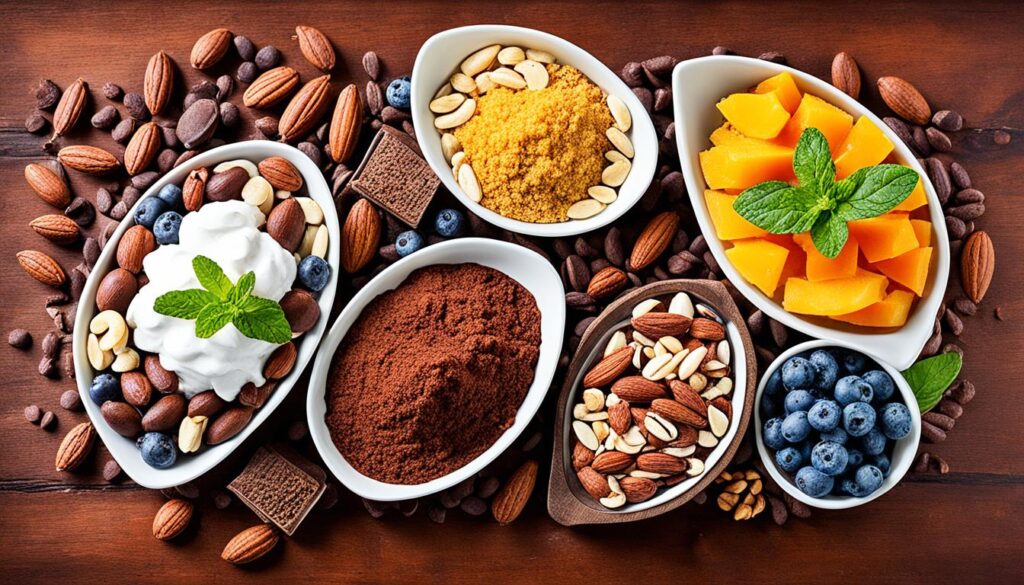
When it comes to optimizing fertility through diet, incorporating cocoa can be a delicious and beneficial addition. Cocoa, the key ingredient in chocolate, is a rich source of magnesium, healthy fats, and powerful antioxidants that can support reproductive health. By choosing high-quality, minimally processed cocoa products and incorporating them into a well-balanced, fertility-friendly diet, you can harness the potential benefits of cocoa in fertility-friendly diet.
Healthy Cocoa Recipes
Integrating healthy cocoa recipes for fertility into your daily routine can be a simple and enjoyable way to support your reproductive health. From sipping on a warm mug of antioxidant-rich hot chocolate to indulging in a decadent cocoa-infused smoothie, there are numerous ways to incorporate this superfood into your meals and snacks.
| Fertility-Friendly Cocoa Recipes | Key Nutrients |
|---|---|
| Cocoa-Avocado Smoothie | Healthy fats, antioxidants, magnesium |
| Cacao Nib-Topped Chia Pudding | Omega-3s, fiber, antioxidants |
| Dark Chocolate-Dipped Almonds | Antioxidants, magnesium, healthy fats |
| Cacao Nibs and Maca Oatmeal | Fiber, antioxidants, hormone-balancing maca |
By incorporating these healthy cocoa recipes for fertility into your diet, you can enjoy the delicious taste of cocoa while also supporting your reproductive health through its powerful nutrients and compounds.
Research Updates and Future Studies

The relationship between cocoa fertility research updates and fertility is an area of active research, with ongoing studies exploring the complex mechanisms and potential applications. As our understanding of this topic continues to evolve, it’s important to stay informed about the latest developments.
Recent studies have shed more light on the impact of cocoa and fertility. For instance, a study published in the Journal of Agricultural and Food Chemistry found that the flavanol compounds in cocoa may enhance sperm quality and motility, suggesting a potential role in improving male fertility. Additionally, a study in the Nutrients journal explored the effects of cocoa on ovarian function and implantation, indicating that moderate cocoa consumption may have a positive influence on female fertility.
As the research on cocoa fertility research updates and future studies on cocoa and fertility continues, scientists are also exploring the specific mechanisms by which cocoa may impact reproductive health. Ongoing investigations are focusing on the antioxidant properties of cocoa, its impact on hormonal balance, and its potential to improve blood flow to reproductive organs.
Moving forward, researchers are eager to conduct more comprehensive, long-term studies to further elucidate the relationship between cocoa consumption and fertility. These future studies on cocoa and fertility will help provide a clearer understanding of the optimal levels of cocoa intake, the specific population groups that may benefit the most, and the potential risks associated with overconsumption.
By staying informed about the latest cocoa fertility research updates and the ongoing research in this field, individuals interested in optimizing their fertility can make more informed decisions about incorporating cocoa into their diets and lifestyle. As the scientific evidence continues to evolve, the potential of cocoa as a natural, fertility-enhancing compound remains a topic of great interest and exploration.
Conclusion
In conclusion, the impact of cocoa consumption on fertility is a complex and multifaceted topic that warrants further research and understanding. The available evidence suggests that moderate intake of cocoa may provide some potential benefits for both male and female reproductive health, primarily due to its antioxidant properties, improved blood flow, and potential hormonal modulation.
The strong correlation between cocoa consumption and the incidence of testicular cancer and hypospadias in young adults highlights the need for cautious consideration of cocoa intake, especially during critical developmental stages. Countries with the highest cocoa consumption levels have also shown higher rates of these male reproductive diseases, underscoring the importance of moderation and balance when it comes to incorporating cocoa into a fertility-friendly lifestyle.
As the consumption of cocoa and sweet foods continues to rise globally, it is crucial to stay informed about the latest research and to make well-informed decisions about the role of cocoa in one’s diet, particularly for those seeking to optimize their fertility. By understanding the potential benefits and risks, individuals can make more informed choices to support their reproductive health and overall wellbeing.

Leave a Reply